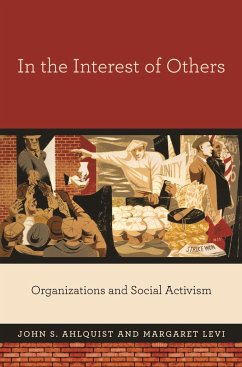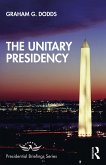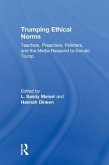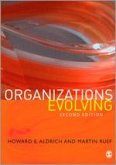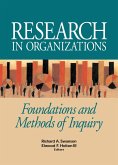Develops a theory of organizational leadership and governance to explain why some organizations expand their scope of action in ways that do not benefit their members directly. This title reveals how activist labor unions expand the community of fate and provoke preferences that transcend the private interests of individual members.
"Why do the members of some trade unions sacrifice time and money to support the causes of others halfway around the world? Ahlquist and Levi provide a convincing answer: founders who build organizations that deliver good jobs to members may also build organizations that transform members' values to support international solidarity. This outstanding book is a must-read for scholars of organizational and political sociology, collective action, and behavioral economics."--Elisabeth Jean Wood, Yale University "Ahlquist and Levi shed fresh new light on one of the most enduring questions in the social sciences. Tapping an impressive array of methods and evidence, this pathbreaking study explores the conditions under which a broad 'community of fate' can be forged and sustained over time, as well as the long-term consequences for the beliefs and preferences of those who comprise that community. This is a major scholarly contribution whose core message will resonate widely among economists, sociologists, and political scientists alike."--Kathleen Thelen, Massachusetts Institute of Technology "A fundamental problem in understanding collective action is why individuals in some organizations take actions for the greater good that are not in their own self-interest. Ahlquist and Levi shed fascinating new light on this problem through an examination of the evolution, organization, and behavior of four labor unions with very different scopes of social, political, and economic engagement. A must-read for any scholar interested in problems of collective action."--Henry Farber, Princeton University "The product of sustained imagination, this important book probes the conditions under which people transcend narrow economic calculations to opt for social justice. By mobilizing analytical tools and deploying them systematically in determinate situations, this beautifully realized comparative analysis of Australian and American trade unions powerfully advances our understanding of organizational leadership, norms, beliefs, networks, scope, mobilization, and much more."--Ira Katznelson, author of Fear Itself: The New Deal and the Origins of Our Time "Ahlquist and Levi have produced the very best rational-choice treatment of activist labor unions. Theoretically, methodologically, and empirically rich, their book is also a superb exemplar of modern comparative politics. In the Interest of Others is a classy and elegant study of a significant political problem."--Mark Lichbach, University of Maryland "In the Interest of Others deals with a truly important issue that has not been adequately analyzed in political science and sociology. This book is going to have a deep impact on the discipline."--Ignacio Sánchez-Cuenca, Juan March Institute, Madrid
"Why do the members of some trade unions sacrifice time and money to support the causes of others halfway around the world? Ahlquist and Levi provide a convincing answer: founders who build organizations that deliver good jobs to members may also build organizations that transform members' values to support international solidarity. This outstanding book is a must-read for scholars of organizational and political sociology, collective action, and behavioral economics."--Elisabeth Jean Wood, Yale University "Ahlquist and Levi shed fresh new light on one of the most enduring questions in the social sciences. Tapping an impressive array of methods and evidence, this pathbreaking study explores the conditions under which a broad 'community of fate' can be forged and sustained over time, as well as the long-term consequences for the beliefs and preferences of those who comprise that community. This is a major scholarly contribution whose core message will resonate widely among economists, sociologists, and political scientists alike."--Kathleen Thelen, Massachusetts Institute of Technology "A fundamental problem in understanding collective action is why individuals in some organizations take actions for the greater good that are not in their own self-interest. Ahlquist and Levi shed fascinating new light on this problem through an examination of the evolution, organization, and behavior of four labor unions with very different scopes of social, political, and economic engagement. A must-read for any scholar interested in problems of collective action."--Henry Farber, Princeton University "The product of sustained imagination, this important book probes the conditions under which people transcend narrow economic calculations to opt for social justice. By mobilizing analytical tools and deploying them systematically in determinate situations, this beautifully realized comparative analysis of Australian and American trade unions powerfully advances our understanding of organizational leadership, norms, beliefs, networks, scope, mobilization, and much more."--Ira Katznelson, author of Fear Itself: The New Deal and the Origins of Our Time "Ahlquist and Levi have produced the very best rational-choice treatment of activist labor unions. Theoretically, methodologically, and empirically rich, their book is also a superb exemplar of modern comparative politics. In the Interest of Others is a classy and elegant study of a significant political problem."--Mark Lichbach, University of Maryland "In the Interest of Others deals with a truly important issue that has not been adequately analyzed in political science and sociology. This book is going to have a deep impact on the discipline."--Ignacio Sánchez-Cuenca, Juan March Institute, Madrid

